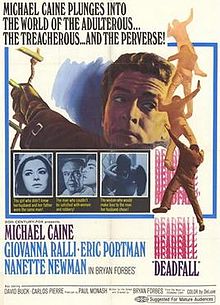
If there’s one thing I know for certain it’s not to get between a woman and her hairdresser. It’s 1973 and Billie Jean King (Emma Stone) and her agent Gladys Heldman (Sarah Silverman) are setting up the Women’s Tennis Association in opposition to the US Lawn Tennis Association led by Jack Kramer (Bill Pullman) because they want equal pay for women players after he’s announced a tournament where women will get precisely one eighth of the men’s prize. BJK is number one in the world and he threatens her – she won’t be able to play in the Grand Slams: but more and more women players are joining her tour, and Virginia Slims are on board with sponsorship. Bobby Riggs (Steve Carell) is the former player now living off his wealthy wife Priscilla (Elisabeth Shue) and on borrowed time in their marriage because he gambles on everything. He acts incensed about BJK’s stance and challenges her to a match but she doesn’t want to be part of his ongoing sideshow. So he challenges Margaret Court (Jessica McNamee) instead after she beats the married BJK following a crisis: she’s had what appears to be a one-night stand with her hairdresser Marilyn (Andrea Riseborough) – it proves to be anything but and she is now second in the world. Court loses and then BJK sees an opportunity when Riggs offers her a prize of $100,000. Her personal life is disintegrating, her husband Larry (Austin Stowell) realises he’s losing her but he tells Marilyn that they’re on the sidelines – because tennis is Billie Jean’s whole life. Then the Bobby bandwagon starts and there’s a huge TV match about to happen … Where to start? What a proposition – the biographical story of a woman who changed the face of modern sport at the same time as she discovered her true sexuality AND responded to a challenge from a man who called her a hairy-legged feminist. So much of this film is about the private versus the public, the individual versus the system, performance on and off court, that it demands – and gets – a finely balanced screenplay from Simon Beaufoy (probably his best by a long shot). The story problem is not just BJK’s discovery of her Lesbianism and the role she is cornered into playing (or be ashamed of herself for the rest of her life, given her perceived position in the women’s game) it’s also about the assertion of love, self and pride and the driven nature of athletes in a money-ridden pro sport. At the same time, it’s showbiz, and that’s where Steve Carell comes in. In Bobby Riggs he has found the role of a lifetime, the role he was born to play as a friend of mine put it. A reckless bon viveur, loudmouth, fun dad, shiftless husband and compulsive gambler it’s really something to see him personify this self-declared male chauvinist pig with such commitment. There are many great scenes here but when he gets up at a Gamblers Anonymous meeting and tells them all their real problem is that they’re bad at gambling – reader, I nearly choked. And that’s where the story magic lies – in bringing together in a legendary face-off two utterly contrasting types and drawing out their similarities – their need to succeed, their desire to win, above everything else in their lives. You’ll be scratching your head afterwards, wondering, Did this really happen?! For real?! Yes it did, albeit women’s equality is still a thing of fiction for many 44 years later. The only niggle is the sense that some story points have been retro-fitted to customise this to contemporary sensibilities: Court’s reaction to the knowledge that BJK might be a Lesbian when the hairdresser on the tour is obviously staying in her room chimes with what was made known about her Christian beliefs last year; Alan Cumming as designer Teddy Tinling gets to spout some very new spiels about equality. In reality the married BJK met Barnett (what an apposite name for a hairdresser) a couple of years earlier and could have devastated her sporting career. And of course their toxic breakup a decade later made BJK work years after she wanted to retire in order to pay her off after she made public their affair and sued her. Barnett then attempted to kill herself and was left paralysed from the waist down. BJK was a moneyspinner and everything she did was made public by those around her including her husband – he supplied her name to Ms. magazine when they were compiling a list of women who’d had an abortion. None of that makes it into a heavily fictionalised biography which is always headed towards the main event at the Houston Astrodome. BJK and her current female partner were the film’s consultants, after all. However, you can’t imagine anyone other than Stone and Carell playing BJK and Riggs and you can’t say better than that. The final complementary scenes in their respective dressing rooms are marvellously conceived. When you see the impact of the entire trajectory on Stone’s face – the enormity of what she has achieved and the realisation – you want to stand up and cheer as much as she is sitting down, crumpled and crying. There are wondrous supporting performances from Silverman, Stowell and Riseborough, who sparkles throughout. And Cumming is good in a stereotypical role of gay costumier and it’s always a delight to see Shue. This is handled with great care as dramedy by the Little Miss Sunshine team, Jonathan Dayton and Valerie Faris. Do yourself a favour – go see it. It’s ace!



































